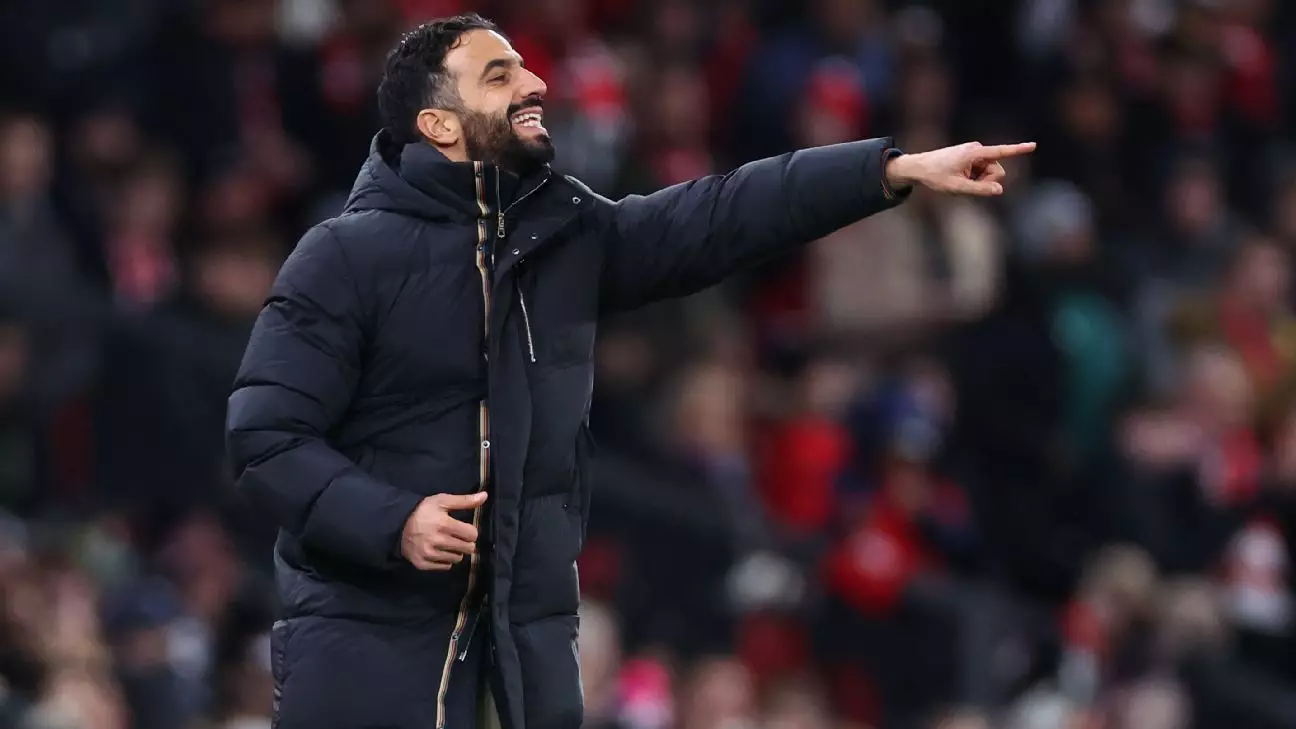Ruben Amorim has recently expressed feelings of unease as he embarks on his managerial journey with Manchester United. His confession sheds light not only on the challenges inherent in adapting to a new role but also on the broader issues of leadership in football. Amorim articulated that he experiences anxiety and nervousness while grappling with the tactical intricacies required to steer his team effectively. It is vital to understand that this level of apprehension is not uncommon for managers charged with the responsibility of revitalizing a storied club, especially one with high expectations like United.
In his first match as Manchester United’s head coach, Amorim achieved a narrow 3-2 victory over Bodo/Glimt in the Europa League. However, the journey to this moment was anything but smooth, as the Norwegian underdogs initially took the lead, illustrating the vulnerabilities that Amorim must address. Such a scenario inevitably weighs heavily on a manager’s shoulders, particularly one still in the process of establishing rapport with his players. Amorim’s open acknowledgment of his anxiety serves to humanize him and highlights the unpredictability managers face as they seek to imprint their vision on the team.
After fielding a modified lineup against Bodo/Glimt, which deviated significantly from his previous game against Ipswich, Amorim noted noticeable improvements in the players’ quality on the ball. This reveals the dual pressure managers endure: the necessity to achieve immediate results while simultaneously instilling their tactical philosophies. However, the reality of fatigue among players is an essential consideration. For example, as Amorim observed, Rasmus Højlund appeared exhausted toward the end of the match, a symptom of the intense pressing game he encourages.
Looking onward to the Premier League clash against Everton, Amorim acknowledged a need to rotate his squad further. This statement reflects the balancing act that each manager must perform—a desire to solidify a starting eleven while recognizing players’ physical limits and potential burnout. The challenge becomes even more complicated for Amorim as he aims to build team cohesion amidst continuous alterations in lineup and strategy. His self-awareness in recognizing these complexities demonstrates a keen understanding of both the game and player psychology.
As Ruben Amorim navigates this transitional phase with Manchester United, his openness regarding feelings of anxiety speaks to the struggles underpinning leadership in high-stakes environments. The pressure to adapt while achieving results is a daunting task, especially in a league that demands immediate success. Yet, as he gains familiarity with his players and refines his strategies, Amorim may very well overcome these initial trials, paving the way for both personal growth and potential victories for the club. The future remains uncertain, but with each match, he inches closer to mastering the demanding yet rewarding role of a top-flight manager.

